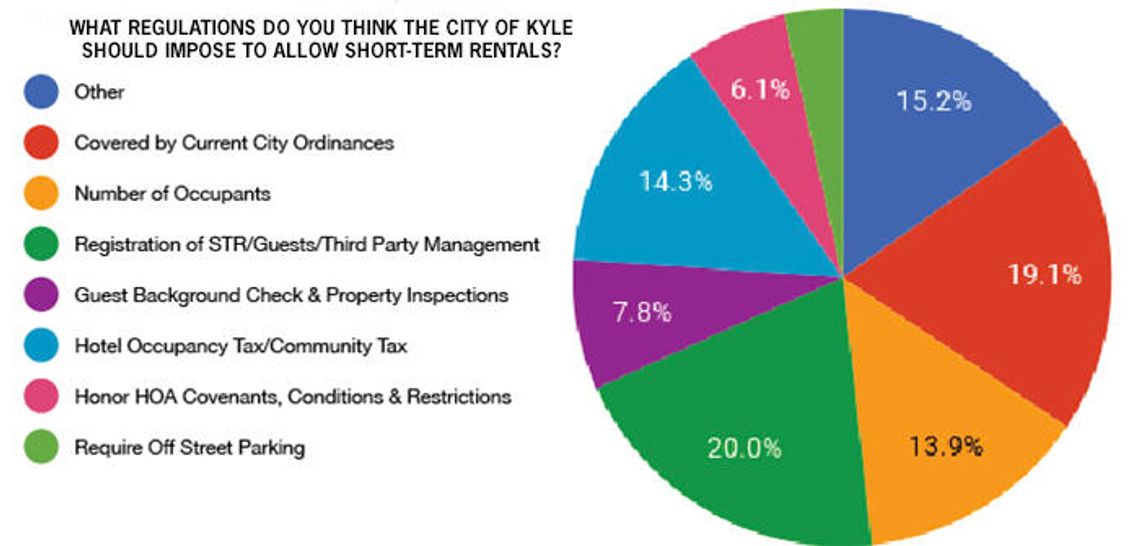A final report by Kyle’s Planning and Zoning Commission regarding the city’s short-term rentals could call for registration of the facilities with the city.
The report was discussed at the final STR workshop last week.
The commission has spent the past few months researching and putting together a report which includes data, a summary of statewide regulations, definitions, and a final recommendation to which will be given to Kyle City Council.
PLEASE LOG IN FOR PREMIUM CONTENT. Our website requires visitors to log in to view the best local news.
Not yet a subscriber? Subscribe today!










